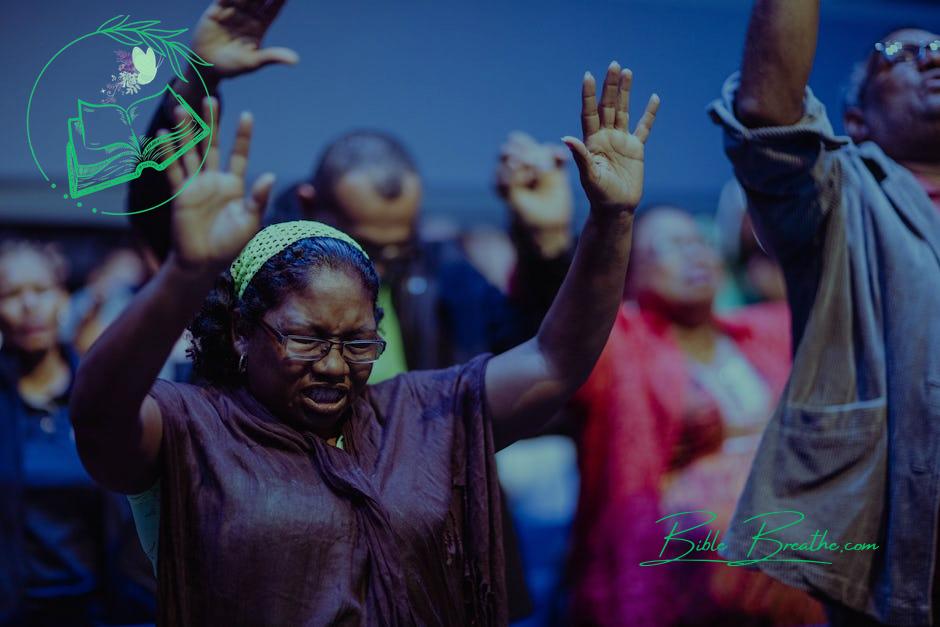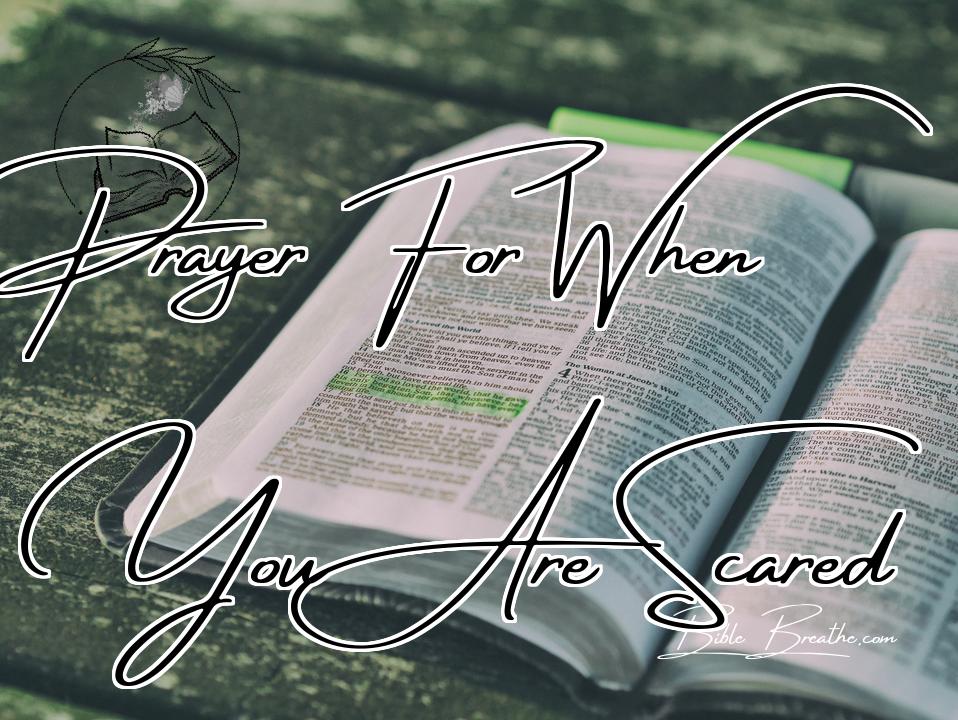Key Takeaways
- When you’re feeling scared, the Bible encourages you to bring your fears to God in prayer, as He is your rock and your salvation (Psalm 18:2).
- The Bible says to “fear not” or “do not be afraid” over 80 times, reminding you that God is with you and will help you through difficult times.
- One of the most famous prayers in the Bible is the Lord’s Prayer, which includes the line “deliver us from evil” (Matthew 6:13), a reminder that God is your protector.
- The apostle Paul prayed for the Philippian church to have peace that surpasses all understanding, which will guard their hearts and minds in Christ Jesus (Philippians 4:7).
- David, a great prayer warrior in the Bible, often prayed for God’s protection and deliverance from his enemies, saying “I will fear no evil, for you are with me” (Psalm 23:4).
- Remember that God is your comforter, and He will comfort you in all your affliction, so don’t be afraid to bring your fears to Him in prayer, as He cares for you (1 Peter 5:7) Christian Prayer.
Introduction
Importance of Prayer in Times of Fear
When fear creeps in, it’s easy to feel overwhelmed and lost.
But here’s the thing: prayer is a powerful tool that can help us navigate those scary moments.
In fact, the Bible is full of examples of people who turned to prayer when they were afraid.
From David to Daniel, from Esther to Elijah, they all knew that prayer was the key to unlocking peace, comfort, and guidance in times of fear.
Brief Overview of the Article’s Content
In this article, we’ll explore the importance of prayer when you’re scared.
We’ll look at some Biblical examples of people who prayed in times of fear, and we’ll discuss some practical tips for making prayer a habit in your own life.
By the end of this article, you’ll be equipped with the tools you need to turn to prayer when fear strikes, and to find peace in the midst of uncertainty.
Understanding Fear and Its Impact

Photo modified by BibleBreathe.com. Original photo by Pixabay on Pexels
Definition of Fear
Fear is a natural human emotion, but it can be overwhelming when it takes over our lives.
The Bible says, “Fear thou not; for I am with thee: be not dismayed; for I am thy God: I will strengthen thee; yea, I will help thee; yea, I will uphold thee with the right hand of my righteousness.” (Isaiah 41:10, KJV)
But what exactly is fear?
It’s that nagging feeling in the pit of your stomach when you’re faced with the unknown or a perceived threat.
Psychological Effects of Fear
Fear can have some serious psychological effects on us, including:
- Anxiety and worry
- Panic attacks
- Depression
- Phobias
- PTSD
It’s like being trapped in a prison of your own mind, with no escape in sight.
But here’s the thing: fear doesn’t have to control us.
How Prayer Can Help Alleviate Fear
So, how can prayer help us overcome fear?
| Prayer Benefit | How It Helps |
|---|---|
| Shifts focus to God | Takes our eyes off the problem and onto the Problem-Solver |
| Brings peace | “Peace I leave with you, my peace I give unto you: not as the world giveth, give I unto you. Let not your heart be troubled, neither let it be afraid.” (John 14:27, KJV) |
When we pray, we’re not alone in our fears. We’re reminded that God is with us, and that He’s got our backs.
Types of Prayers for Overcoming Fear
Personal Prayers for Courage
When we’re scared, it’s easy to feel like we’re all alone. But God is always with us, and personal prayers can help us tap into that comfort.
Here are some tips for personal prayers when you’re feeling fearful:
- Be honest with God: Tell Him exactly how you’re feeling – He can handle it!
- Use Scripture: Claim Bible verses like “Fear thou not; for I am with thee: be not dismayed; for I am thy God” (Isaiah 41:10, KJV) to remind yourself of God’s presence.
- Ask for courage: Pray for the strength to face your fears head-on.
Traditional Prayers for Strength
Sometimes, we need a little extra help when we’re feeling scared. Traditional prayers can provide a sense of comfort and familiarity.
Here are a few examples:
- The Lord’s Prayer: “Our Father which art in heaven, Hallowed be thy name” (Matthew 6:9, KJV) is a great place to start.
- Prayers of the saints: Look to the prayers of Christian heroes like St. Augustine or St. Francis for inspiration.
- Liturgy: Use liturgical prayers from your church tradition to connect with a larger community of believers.
Meditative Prayers for Peace
When we’re feeling anxious or scared, our minds can start to race. Meditative prayers can help calm our thoughts and focus on God’s peace.
Here are some tips:
- Find a quiet space: Get away from distractions and find a quiet spot to pray.
- Focus on your breath: Take slow, deep breaths and focus on the sensation of the air moving in and out of your body.
- Repeat a mantra: Use a simple phrase like “The Lord is my shepherd” (Psalm 23:1, KJV) to calm your mind and focus on God’s presence.
Remember, prayer is a conversation with God, and there’s no one “right” way to do it. Experiment with different types of prayers to find what works best for you when you’re feeling scared.
The Power of Faith in Prayer

Photo modified by BibleBreathe.com. Original photo by Pixabay on Pexels
How Faith Influences the Effectiveness of Prayer
When we’re scared, it’s easy to let fear take over and dictate our prayers.
But what if we could shift our focus from our fears to our faith?
Faith is the currency of heaven, and when we pray with faith, we open ourselves up to God’s power and provision.
Stories of Overcoming Fear Through Faith-Based Prayers
Let’s look at some examples of people in the Bible who prayed with faith when they were scared:
- David and Goliath: David was just a young guy facing a giant, but he prayed with faith, trusting in God’s power. (1 Samuel 17:45-47, KJV)
- Daniel in the lions’ den: Daniel was about to be thrown to the lions, but he prayed with faith, trusting in God’s protection. (Daniel 6:10-23, KJV)
- The disciples in the storm: The disciples were terrified in the middle of a storm, but Jesus prayed with faith, trusting in God’s sovereignty. (Mark 4:35-41, KJV)
What can we learn from these examples?
- Faith is not the absence of fear, but the willingness to trust God despite our fears.
- Faith is not a feeling, but a choice to believe in God’s goodness and power.
- Faith is not a magic formula, but a relationship with a God who cares about us deeply.
When we pray with faith, we’re not saying we’re not scared; we’re saying we trust God more than our fears.
Techniques for Enhancing Prayer Experience
Mindfulness Practices Before Prayer
Get your heart in the right place before you start praying.
Take a few deep breaths, and let go of distractions.
You can try some simple mindfulness exercises to calm your mind and focus on God.
- Take a short walk outside, and pay attention to your surroundings.
- Do some light stretching to loosen up any tension.
- Simply sit in silence for a minute, focusing on your breath.
Remember, the goal is to quiet your mind and listen to God.
Creating a Sacred Space for Prayer
Make your prayer space feel special.
- Find a quiet spot where you can be alone with God.
- Light a candle or play some soft music to set the mood.
- Get comfortable, but avoid distractions like your phone or TV.
Think of it like preparing a sacred altar in your heart.
Using Affirmations in Prayer
Speak life into your prayers with affirmations.
- Instead of focusing on your fears, declare God’s truth over your life.
- Use Scripture to remind yourself of God’s promises.
- Speak positively about your situation, even when it’s hard.
For example, you could say: “God, I’m scared, but I trust in Your goodness. You are my rock, and I will not be shaken.”
“What time I am afraid, I will trust in thee.” (Psalm 56:3, KJV)
Prayer Practices from Different Cultures

Photo modified by BibleBreathe.com. Original photo by Tiana on Pexels
Comparative Analysis of Prayer Practices
When we’re scared, prayer becomes our lifeline. But have you ever wondered how people from different cultures and faith backgrounds pray when they’re fearful?
Let’s take a peek at some examples:
- In some African cultures, prayer involves dancing and singing to express emotions and connect with the divine.
- In Hinduism, prayer often includes meditation and yoga to calm the mind and focus on the inner self.
- In Islam, prayer involves physical postures and recitation of scripture to connect with Allah and seek guidance.
These practices might look different from our own, but they share a common thread: a deep desire to connect with something greater than ourselves.
Universal Themes in Prayers for Fear
Despite the differences in prayer practices, there are some universal themes that emerge when we’re scared:
- A cry for help: We all cry out to a higher power when we’re fearful, don’t we?
- A desire for comfort: We seek comfort and reassurance in times of uncertainty.
- A need for guidance: We want to know what to do next and how to navigate the unknown.
These themes remind us that, despite our differences, we’re all human beings seeking connection and guidance in times of fear.
“Fear thou not; for I am with thee: be not dismayed; for I am thy God: I will strengthen thee; yea, I will help thee; yea, I will uphold thee with the right hand of my righteousness.” (Isaiah 41:10, KJV)
This verse from Isaiah reminds us that, no matter what our prayer practice looks like, God is always with us, ready to comfort, guide, and strengthen us in times of fear.
Scientific Perspectives on Prayer and Fear
Research on the Effects of Prayer on Fear
When we’re scared, our brains go into fight or flight mode. It’s like our body’s alarm system is blaring, and we can’t seem to turn it off. But what if I told you that prayer can be the reset button?
Studies have shown that prayer can actually calm our nervous system, reducing feelings of fear and anxiety. It’s not just about feeling better emotionally; prayer can literally change our brain chemistry.
| Brain Region | Effect of Prayer on Fear |
|---|---|
| Amygdala | Reduced activity, leading to decreased fear response |
Neurological Responses to Prayer in Times of Fear
So, what’s happening in our brains when we pray in times of fear?
Prayer activates the default mode network, which is responsible for our sense of self and our connection to others. It’s like our brain is saying, “I’m not alone in this. I’ve got God, and He’s got my back.”
When we pray, our brain also releases endorphins, which are natural painkillers that promote feelings of calm and relaxation. It’s like a deep breath of fresh air for our nervous system.
For God hath not given us the spirit of fear; but of power, and of love, and of a sound mind.” (2 Timothy 1:7, KJV)
In the words of C.S. Lewis, “Relying on God has to begin all over again every day as if nothing had yet been done.” When we’re scared, prayer can be our daily reset, our reminder that God is always with us, no matter what.
Integrating Prayer into Daily Life

Photo modified by BibleBreathe.com. Original photo by Luis Quintero on Pexels
Incorporating Prayer Routines for Managing Fear
When we’re scared, it’s easy to feel like we’re stuck in a dark place with no way out. But here’s the thing: prayer is the light that can guide us through that darkness.
Think of it like this: when you’re lost in a new city, you don’t just wander around hoping to stumble upon your destination. You pull out your map (or your phone) and ask for directions. Prayer is like asking for directions from God.
So, how can we make prayer a regular part of our lives, especially when we’re feeling fearful or anxious?
Here are a few ideas:
- Start small: Begin with short, simple prayers throughout the day. It can be as easy as saying, “God, I’m scared right now. Please help me.
- Make it a habit: Choose a specific time and place to pray each day, like first thing in the morning or right before bed.
- Be honest: Don’t try to put on a brave face with God. He already knows how you’re feeling, so just be honest about your fears and worries.
Benefits of Consistent Prayer Practice
So, what happens when we make prayer a regular part of our lives?
Here are just a few benefits:
- Peace of mind: When we pray consistently, we can experience a sense of peace that goes beyond our circumstances.
- Clarity of thought: Prayer helps us focus on what’s really important and gives us a clearer sense of direction.
- Strength in the face of fear: When we’re praying regularly, we’re more likely to feel brave and confident, even when things seem scary.
Call unto me, and I will answer thee, and shew thee great and mighty things, which thou knowest not.” (Jeremiah 33:3, KJV)
Remember, prayer isn’t a magic fix that makes all our problems disappear. But it does give us the strength and courage we need to face our fears head-on.
Community and Support Through Prayer
Group Prayers for Collective Strength
When we’re scared, it’s natural to want to hide under a rock and pretend everything will magically go away. But prayer for when you are scared can be a powerful tool to help us face our fears head-on.
Imagine being surrounded by a group of people who understand exactly what you’re going through. They’re not just sympathizing with you; they’re standing with you, holding your hands, and lifting you up in prayer.
| Benefit | How Group Prayer Helps |
|---|---|
| Shared burden | You’re not alone in your struggles; others are carrying the load with you. |
| Collective strength | When we pray together, our faith grows, and we become stronger as a unit. |
Online Prayer Communities for Support
But what if you can’t find a local group to pray with? That’s where online prayer communities come in!
These online communities can provide a sense of connection and support when you’re feeling isolated or scared. You can share your prayer requests, receive encouragement, and even participate in virtual prayer meetings.
As Charles Spurgeon once said, “The prayer of many is better than the prayer of one.” When we come together in prayer, we can experience the power of collective prayer and support.
“For where two or three are gathered together in my name, there am I in the midst of them.” (Matthew 18:20, KJV)
Frequently Asked Questions About Prayer For When You Are Scared
What are some common prayers for fear?
Some common prayers for fear include Psalm 23, ‘Do not be anxious about anything…’ from Philippians 4:6, and ‘Fear not, for I am with you…’ from Isaiah 41:10. You can also pray for courage, peace, and trust in God’s presence, like ‘Dear God, I’m scared, but I trust in you…’
How can I stay focused during prayer when I’m scared?
When fear distracts you during prayer, try taking deep breaths, acknowledge your emotions, and refocus on your prayer intention. Use a prayer journal or a devotional to guide you, and remember that God is with you, even in fear.
Can prayer really help alleviate fear?
Yes, prayer can be a powerful tool in reducing fear and anxiety. Research shows that prayer can lower cortisol levels, heart rate, and blood pressure, promoting a sense of calm and relaxation. It can also provide a sense of control and comfort, helping to alleviate fear and anxiety.
Matt Turner
I’m Matt, and I love breaking down Bible verses in a way that’s easy to understand and apply to everyday life. My goal is to help you connect with God’s Word and find practical ways to live it out. Whether you’re new to the Bible or just looking for some fresh insights, I’m here to walk with you and share what I’ve learned along the way.

